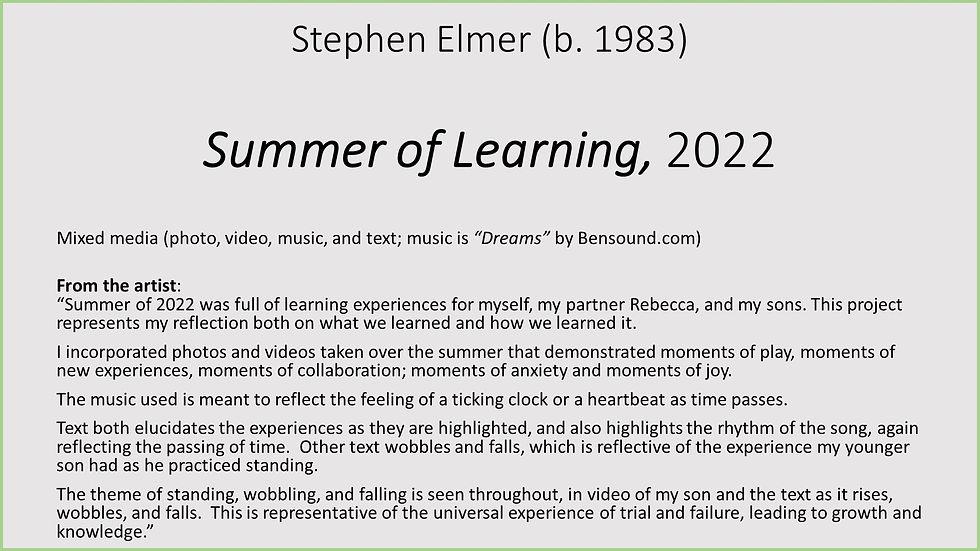The more we get together...the happier we'll be?
- elmerst2
- Jul 24, 2022
- 2 min read
I only learned the term "affinity spaces" about a year ago, in chapter 6 of a book about situated learning (Gee, 2004). I had never heard the term before, but I was very familiar with affinity spaces; I often frequent spaces like Reddit, YouTube, and other online forums to discuss and learn about topics, ranging from dishwasher repair to home network management.
I'm thinking about affinity spaces again. They are a remarkable phenomenon - a gathering of users collaborating around a common interest, where all are welcome to share, listen, take ownership, and participate in building and making. It's a reflection of what you would hope for society at large. And it's an incredible resource for building personal knowledge and expertise around a topic or skill.

After reflecting on the benefits of affinity spaces, I've intentionally added some forums related to education technology, teaching, and instructional design. I've also added some blogs to my reading list that are written by authors who collaborate and share on topics related to standardized testing, common core education, ungrading, and inequality in education. These are areas where I have had interest in the past but had not taken initiative to expand my media inputs in these topics.
A quick take on the potential dark side of affinity spaces - the risk of confirmation bias. When you surround yourself with like-minded individuals, the more at risk you are for putting yourself in a filter bubble, where all of the ideas being shared simply echo what you've determined to be true. Be sure to challenge yourself by intentionally welcoming conflicting viewpoints, or you may find yourself in an echo chamber.
References:
Gee, J. P. (2004). Situated language and learning: A critique of traditional schooling. Psychology Press.
Muselsom. (2018, Marcy 29). CiS2018 minecraft slides, classroom of czech teachers [Photograph]. Wikimedia Commons. https://commons.wikimedia.org/wiki/File:CiS2018_minecraft_slides,_classroom_of_czech_teachers.jpg
Veritasium. (2014, February 24). The most common cognitive bias [Video]. YouTube. https://youtu.be/vKA4w2O61Xo





Comments